Are you determined to make a New Year resolution for 2021?
Research shows that almost 50% of all Americans make New Year resolutions. And half of them will make more than one.
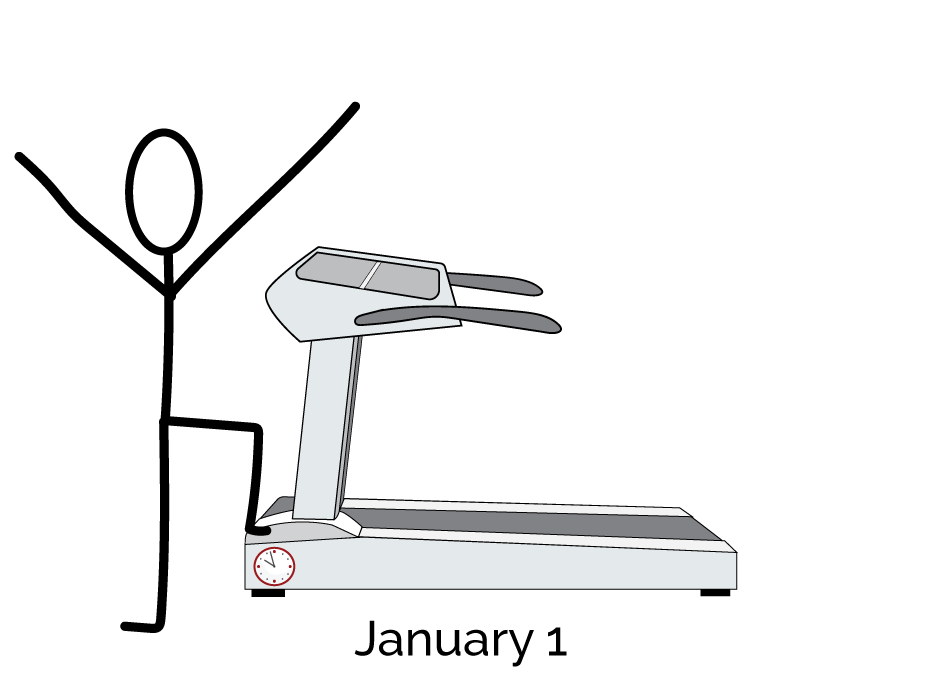
The skeptics out there think resolutions are a waste of time–and they aren’t completely unfounded. When it comes to follow through, here’s how most people do:
- 46% stayed the course (or reached their goal)
- 56% didn’t make it to June
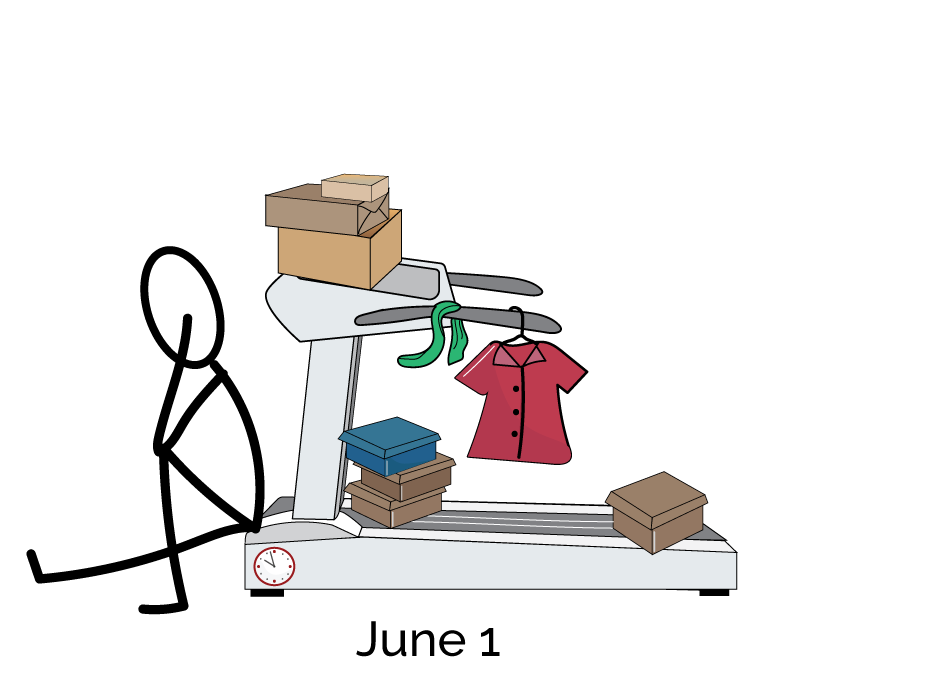
Why resolutions fail
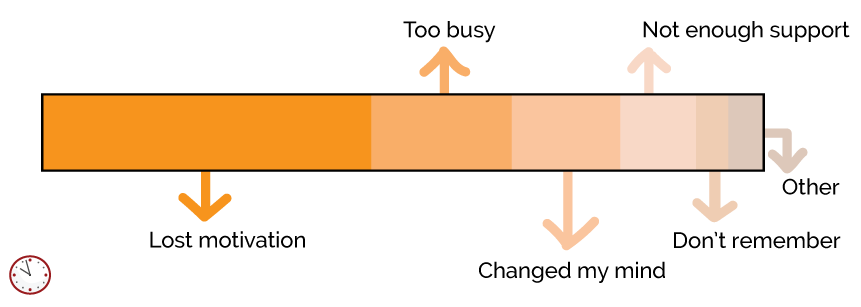
The secret to success
If you want to keep a resolution, here’s the secret: work with your brain.
Don’t force it to do what it can’t.
Neuroscientists tell us that our brains have 10 executive functioning skills. Of these 10 skills, some are strong – and some are not. And it’s different for everyone.
Simple factors like what we do, when we do it and how we get it done are impacted by the strength (or weakness) of our executive functions. This is at the core of why we procrastinate … have trouble staying focused … or can’t keep our priorities in order. Our brains just aren’t strongly wired in those areas!
If your brain doesn’t have a strong skill, all you need to do is reinforce it by bringing in targeted support. This might sound complicated but in fact, it’s incredibly simple: Just make a connection between where you are now and where you want to go.
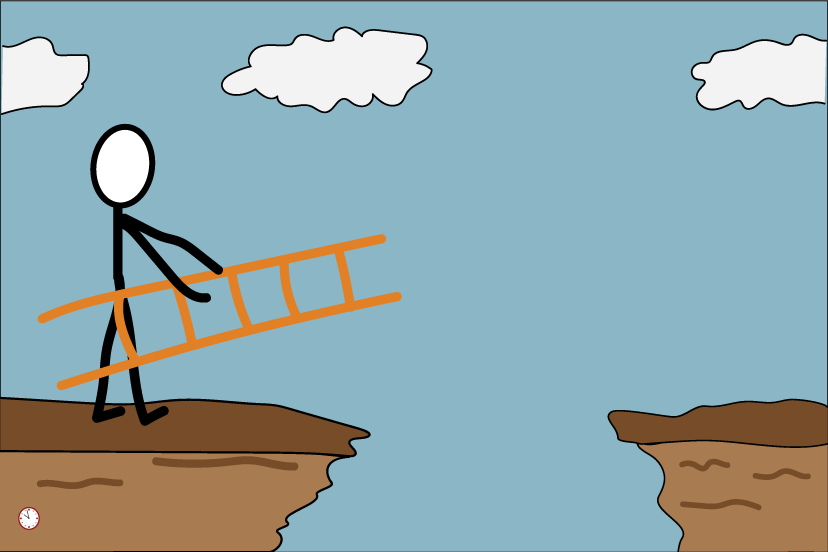
Here’s how it works:
First, you need to know your brain’s executive functioning skills. If you’re familiar with these 10 brain skills, then you probably have a good idea of where your brain might need support.
Not sure how your brain skills rank? Take the 10-minute brain skills quiz. Then read on to find targeted tips for each skill:
Metacognition (Self-awareness)
This brain skill is engaged simply when you have awareness about making a resolution. Those of us who charge through life on autopilot are less likely to stop and consider which areas we want to work on (and hence create something like a New Year’s resolution).
**So… if you’ve already made a resolution, you’ve used this skill!
Planning & Prioritization
As the saying goes: “A goal without a plan is just a wish.” The brain wants and needs a plan for how to be successful with any resolution. How will you know you’ve hit the mark and finished what you set out to do?
TIP: Map out the steps from start to finish.
(Getting a plan in place is also a huge help to many other brain skills.)
Mental Flexibility (Adaptability)
Some brains want to give up when any aspect of a plan changes. Sound familiar? If so, take a close look at the steps you’ve outlined and identify all the threats to success. Planning for any threats to success guarantees that when sh!t happens, you’ll be ready.
TIP: Create a contingency plan for how you’ll manage each threat if/when you encounter them.
Task Initiation (Taking action)
If you know you procrastinate, this skill is your nemesis. Taking action in the first week of January generally isn’t difficult. But taking action at 3 months (or 6 months) can be incredibly hard.
If you’ve lost steam on your resolution(s) and can’t get yourself to do anything, look for areas to dial it back. Here’s an example: If you set a goal to work out 5 days a week, reduce the length of your workout time. Commit to working out for only 10 minutes. If you stop after 10, that’s okay – you have successfully met your commitment. (Chances are very high that you’ll end up doing more but that’s not really the point). Then add more time as your habit gets stronger.
TIP: Keep your commitment small so you can maintain focus.
Sustained Attention (Focus)
squirrel… squirrel… squirrel…
This brain skill is about focus. Are you losing energy on your resolution or struggling to keep your time, energy, and attention in sync with your goal?
TIP: Keep commitments small and manageable, and be sure to keep them visible with the end in sight, because your brain likes to see progress and how close you are to the finish line.
Goal-Directed Persistence (Getting to the end)
A well-thought-out plan gives you a clear picture of what success looks like. It also helps your brain latch onto the idea that you will be successful.
TIP: Create an elaborate visual representation of what successfully meeting your resolutions will look like. Sketch it out, create a Pinterest board, and use visualization exercises.
Response Inhibition (Impulse control)
When we’re tired, we can talk ourselves out of doing just about anything. We lose our ability to stay committed and are more likely to give in to temptations and call it quits.
TIP: If you find yourself avoiding your resolutions, try taking action on it earlier in the day. When you’re well-rested, your head is clear. When your head is clear, you can tackle the tough stuff and start the day feeling accomplished.
Working Memory (Remembering things)
From the moment we wake up, we fill our minds with details, details, details. Sometimes it’s difficult to even remember we made resolutions. This is where the phrase “out of sight; out of mind” rings true. We need visual reminders of our commitments!
TIP: Keep your resolution in sight so you don’t forget it. Keep it simple and make it look nice – you might frame it and keep it on your desk or dedicate a chalkboard in a common area to display your goals at all times.
Time Management
All brains relate to the passage of time differently. If your brain is not strong in this skill, the awareness of time can get lost easily; a 15-minute task might seem like a 50-minute task. Add in any reluctance about doing the task and all of sudden, it becomes an insurmountable time-hurdle. It may sound like this:
• “If I work out now, my whole afternoon will be gone.”
• “I can’t make a healthy dinner tonight. It’ll take hours!”
TIP: The best way around this hurdle is to track how much time you spend doing things. Keep a clock or timer handy, and pay attention to the time you start and the time to finish. You will soon learn which tasks take less time, and which require more. Chances are, most tasks will take you less time than you think (and if they take longer, try breaking them into smaller steps like I mentioned in the tip for Task Initiation above).
Organization
When we can’t find what we need when we need it, stress levels go up. Some brains naturally and seamlessly keep stuff in order. Remember this: a place for everything and everything in its place.
TIP: Keep all the things related to your resolutions in one place so when you’re ready to take action, you don’t have to spend any time finding things.
You can succeed
Remember no brain is strong in all ten brain skills. But once you understand your brain’s unique strengths and weaknesses, you can get the right support that helps you stick to your resolutions all year long.
Now go get ‘em. You’ve got this!
Happy New Year to you!
~ Mary Ellen
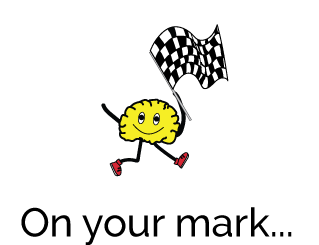
PS. I’d love to hear about your progress. Send me a message here to let me know how it’s going (I promise to get back to you within two business days!).
